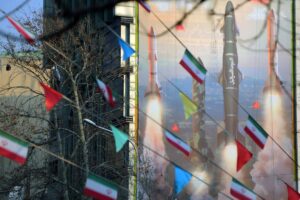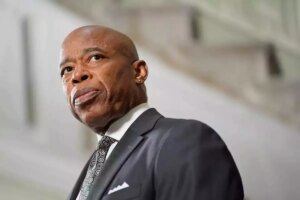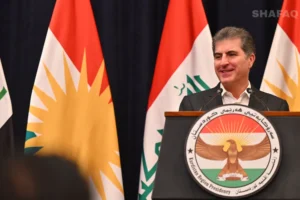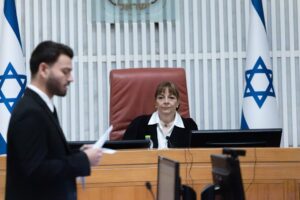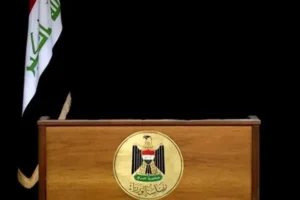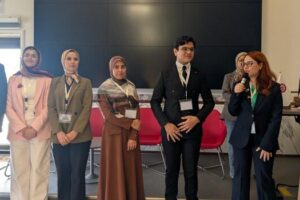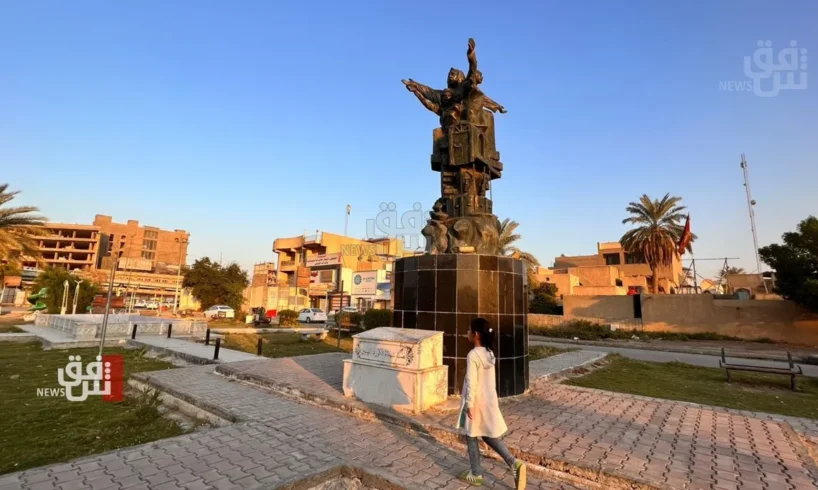
Shafaq News
Divided across rival alliances but converging on a shared political
mission, Feyli Kurdish candidates are entering Iraq’s new parliament with
influence that exceeds their limited numbers. Their rise comes at a time of
intense political fragmentation — with competing Shia poles, divided Kurdish
parties, and multiple Sunni alliances — giving smaller actors unexpected
leverage.
For the Feylis, the question is
whether representation spread across different blocs can be converted into a
coordinated push for long-delayed rights, recognition, and justice.
A Community Pushing Beyond Geography
and Quotas
Unlike other Kurdish representatives
who operate mainly within the Kurdistan Region’s political framework, Feyli
candidates campaigned across Baghdad, Diyala, Wasit, and other provinces —
reflecting both demographic spread and a drive to move beyond quota-based
politics and into national decision-making.
For years, Feyli Kurds had no
guaranteed parliamentary seat. Until 2018, they lacked minority allocation
despite the presence of quotas for Christians, Shabak, Yazidis, and Sabeans.
The law was amended in March 2023, granting them a single national seat. Under
the revised Article 15, minorities now vote in one nationwide constituency —
meaning a voter in Basra can cast a ballot for a Feyli candidate in Wasit.
These amendments provided a legal
opening for representation but did not resolve the challenge of building a
cohesive political structure.
Read more: Genocide survivors: Feyli Kurds seek true political representation
A National Voice
Haidar Ali Abu Tara secured the
Feyli quota seat with 17,174 votes on the Kurdistan Democratic Party (KDP)
list. He told Shafaq News he is “determined to follow [KDP] Leader Masoud
Barzani’s guidance in serving the Iraqi people — of all components, ethnicities,
and backgrounds — from Fao to Zakho.”
He outlined a program centered on
institutional strength and political cohesion, with priorities that include
“working to unify the voice and ranks of the Feyli community, which suffered
greatly during the past decades and has yet to regain its legitimate rights,”
alongside enhancing legislative and oversight performance.
His alignment with the KDP places
him inside a major Kurdish power center while also carrying expectations that
he will operate nationally. It inserts Feyli representation into the
competitive KDP–Patriotic
Union of Kurdistan (PUK) landscape, where minority outreach has become
part of a broader parliamentary strategy.
Baghdad candidate Ali Shamel
received 4,000 votes and may become the first alternate. He told Shafaq News,
“Despite receiving congratulations from many, my victory is not yet confirmed,”
noting that his total “may not qualify me to secure a seat in the next
parliament and could place me as the first reserve.”
Running independently, Shamel
welcomed the success of other Feyli candidates, stressing that parliament is
“not a personal goal for me, but a way to serve Iraq through important
legislation that benefits the country and supports the rights of marginalized
groups.”
“Feyli MPs across different lists
will represent Iraq well and will exert their utmost efforts in serving the
nation.”
In Diyala, Nazik Ahmed won more than
7,000 votes on the Al-Azm Alliance list led by Muthanna al-Samarrai. She said
her victory carries “a great responsibility to provide services to Diyala,
which suffers from deteriorating health conditions and other essential
sectors,” while stressing that parliamentary duty “does not stop at serving
Diyala or the Kurdish community alone, but extends to serving Iraq and all
Iraqis in a manner that meets public expectations.”
She underscored the centrality of
legislative and oversight roles in supporting stability and development. Her
presence within Al-Azm highlights Sunni alliances’ interest in minority
candidates, particularly in contested areas like Diyala, where political
legitimacy depends on cross-community appeal.
Feyli MPs now sit within different
alliances — including the KDP, Al-Azm, and independent lists — giving them
access to varied negotiation channels. However, this diversity also underscores
the absence of a unified political structure.
Before the elections, Feyli affairs
adviser Fouad Ali Akbar noted that “political money is unequal and therefore
candidates do not compete fairly,” adding that Feyli political discourse is
typically national in tone, rooted in a history of suffering and a search for
identity. He warned that the younger generation “does not have a complete
understanding of the Feylis’ suffering,” calling for renewed community
awareness.
Read more: Stateless in their homeland: The unending exile of Iraq’s Feyli Kurds
Against this background, the central
challenge emerges: Can Feyli representatives turn moral legitimacy into real
political leverage?
The Regional Layer: Identity,
Influence, and Strategic Competition
Feylis’ mixed Kurdish–Shia identity
places them at a political crossroads involving Baghdad, Erbil, and Tehran.
Iran maintains historical and social
ties with Feyli communities, particularly those deported during the Baath era.
Its influence over Iraq’s Shia parties indirectly affects how minority files
move in parliament, especially for Feyli MPs aligned with the Shiite Coordination
Framework.
For the KDP, Feyli representation
contributes to a broader push to expand Kurdish influence in Baghdad. A
successful Feyli figure strengthens the party’s narrative of national outreach
and intensifies competition with the PUK, which has long cultivated relationships
with minority communities.
Sunni alliances such as Al-Azm
utilize minority candidates to signal moderation and broaden their coalition in
mixed provinces like Diyala, giving Feyli figures access to political arenas
typically dominated by local tribal actors.
Together, these dynamics place Feyli
MPs at the center of overlapping political contests. Their effectiveness will
depend on balancing community priorities with the expectations of the alliances
that backed them.
The Unfinished Files That Will
Define Their Work
Baath-era crimes remain the core of
the Feyli legislative agenda. Nearly half a million were deported, tens of
thousands lost citizenship, and over 15,000 young men remain missing. Despite
the formal recognition of genocide, files related to citizenship, compensation,
missing persons, property restitution, and political representation remain
unresolved.
These dossiers require legislative
coordination and committee influence. The Legal Committee handles citizenship
and reparations, while the Human Rights Committee oversees missing-persons
cases and mass-grave investigations.
Past parliaments failed to advance
these files largely because major blocs allocated political capital elsewhere.
To avoid a repeat, Feyli MPs must secure space in key committees or build
alliances with members who hold those seats.
Success will depend on coordinated
efforts. Their presence across multiple alliances gives them broad access, but
without internal coordination, larger blocs could absorb their agenda
symbolically without delivering concrete outcomes.
What the Next Parliamentary Term
Could Look Like
The new parliament offers both
opportunity and risk for Feyli representation. Several trajectories are
possible:
1. Forming a cross-party Feyli
caucus
A small but coordinated caucus
focused on core files — citizenship, compensation, missing persons — could gain
leverage amid bloc fragmentation.
2. Competing blocs may pull Feyli
MPs in different directions
The KDP will expect its Feyli
representative to reinforce Kurdish influence.
Sunni alliances will seek loyalty in
the federal–local power debates.
Without early coordination, Feyli’s
priorities may be diluted.
3. Committee influence will
determine real outcomes
Access to the Legal, Human Rights,
Finance, and Migration committees will shape progress on long-stalled files.
Without committee roles, movement will depend on larger blocs’ goodwill.
4. The risk: visibility without
results
Feyli MPs could gain prominence
inside their alliances yet fail to advance community files unless they secure
concrete commitments within those blocs.
Read more: Honoring or ignoring? Feyli Kurds divided over Martyrs’ Day designation
Ultimately, the next term will
determine whether dispersed representation evolves into structured political
power — or whether the Feyli cause remains acknowledged but not
institutionalized. Their success depends on coordination, committee access, and
strategic navigation of Iraq’s fractured parliamentary map.
Written and edited by Shafaq News
staff.
